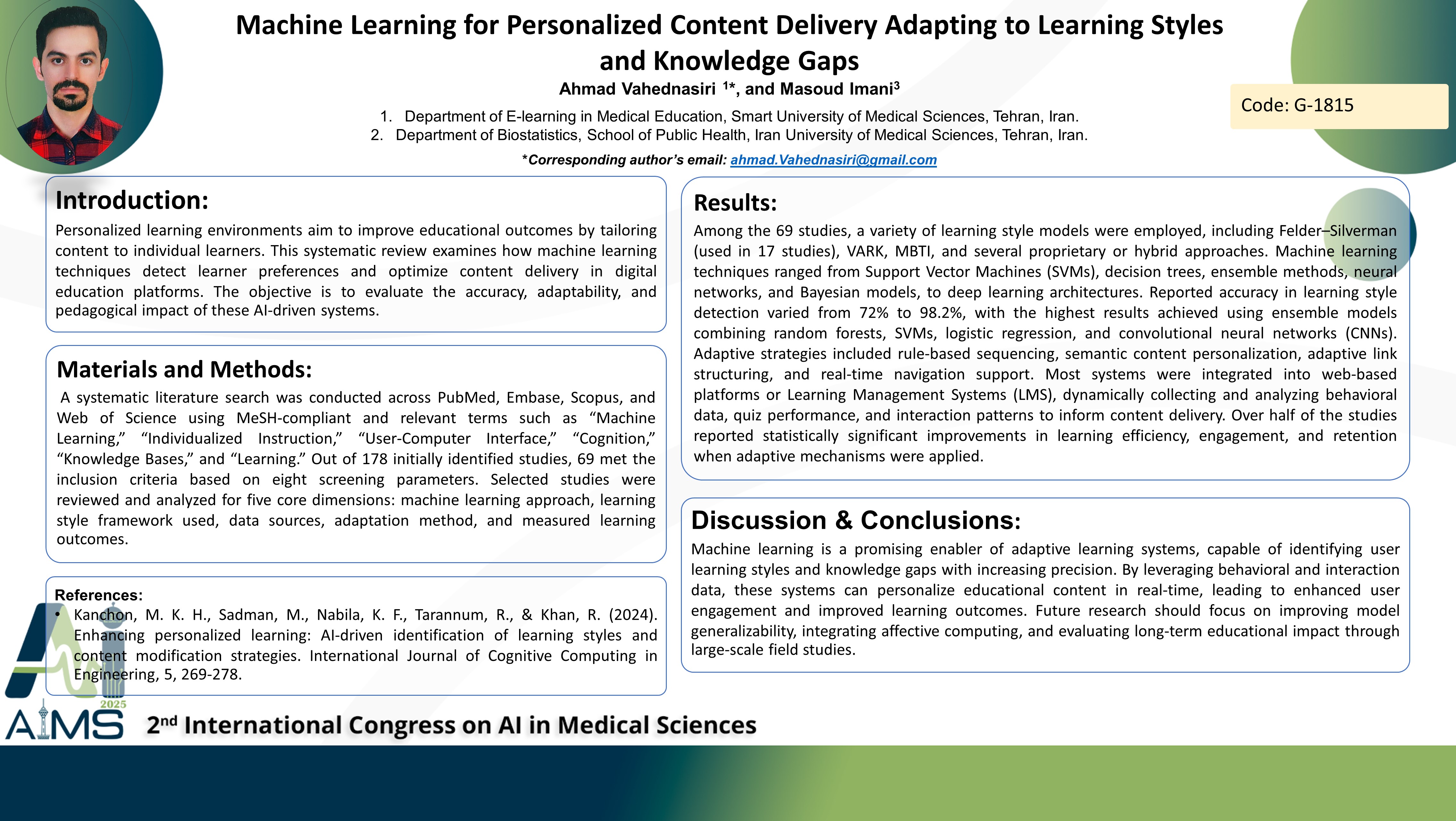یادگیری ماشینی برای ارائه محتوای شخصیشده: تطبیق با سبکهای یادگیری و شکافهای دانش
کد: G-1815
نویسندگان: Ahmad Vahednasiri * ℗, Masoud Imani
زمان بندی: زمان بندی نشده!
برچسب: دستیار مجازی هوشمند
دانلود: دانلود پوستر
خلاصه مقاله:
خلاصه مقاله
Background and Aims: Personalized learning environments aim to improve educational outcomes by tailoring content to individual learners. This systematic review examines how machine learning techniques detect learner preferences and optimize content delivery in digital education platforms. The objective is to evaluate the accuracy, adaptability, and pedagogical impact of these AI-driven systems. Method: A systematic literature search was conducted across PubMed, Embase, Scopus, and Web of Science using MeSH-compliant and relevant terms such as “Machine Learning,” “Individualized Instruction,” “User-Computer Interface,” “Cognition,” “Knowledge Bases,” and “Learning.” Out of 178 initially identified studies, 69 met the inclusion criteria based on eight screening parameters. Selected studies were reviewed and analyzed for five core dimensions: machine learning approach, learning style framework used, data sources, adaptation method, and measured learning outcomes. Results: Among the 69 studies, a variety of learning style models were employed, including Felder–Silverman (used in 17 studies), VARK, MBTI, and several proprietary or hybrid approaches. Machine learning techniques ranged from Support Vector Machines (SVMs), decision trees, ensemble methods, neural networks, and Bayesian models, to deep learning architectures. Reported accuracy in learning style detection varied from 72% to 98.2%, with the highest results achieved using ensemble models combining random forests, SVMs, logistic regression, and convolutional neural networks (CNNs). Adaptive strategies included rule-based sequencing, semantic content personalization, adaptive link structuring, and real-time navigation support. Most systems were integrated into web-based platforms or Learning Management Systems (LMS), dynamically collecting and analyzing behavioral data, quiz performance, and interaction patterns to inform content delivery. Over half of the studies reported statistically significant improvements in learning efficiency, engagement, and retention when adaptive mechanisms were applied. Conclusion: Machine learning is a promising enabler of adaptive learning systems, capable of identifying user learning styles and knowledge gaps with increasing precision. By leveraging behavioral and interaction data, these systems can personalize educational content in real-time, leading to enhanced user engagement and improved learning outcomes. Future research should focus on improving model generalizability, integrating affective computing, and evaluating long-term educational impact through large-scale field
کلمات کلیدی
Machine Learning, Cognition, Knowledge Bases, Learning
